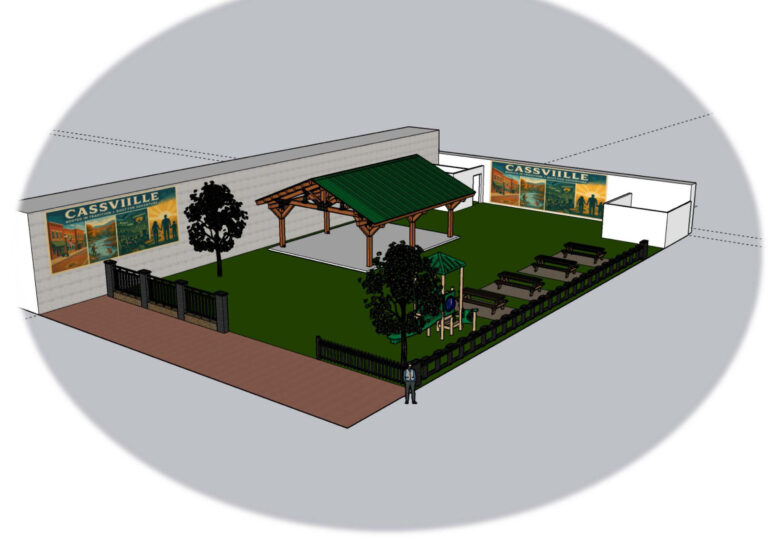Comments open for land-application permits
DNR invites public to comment on industrial waste use from 19 businesses
A Missouri Department of Natural Resources (DNR) public notice regarding the land application of processing waste materials by Denali Water Solutions — and 18 other companies who land-apply processing waste in Missouri – is now open for public comment on the department’s website.
Residents can comment on the proposed permit at https://dnr.mo.gov/water/what-were-doing/public-notices, referenced as No-Discharge Land Application of Process Wastes Operating Under Permit Exemption, through Dec. 31, 2023.
The notice was sent to 19 companies who were formerly land-applying processing waste in Missouri with a fertilizer permit issued from the Missouri Fertilizer Control Board. Those businesses include: 101, Inc. – Unilever; Barr Engineering (on behalf of Aurora Organic Dairy); Biokyowa; Bub’s, Inc.; City of Cape Girardeau; City of St. Joseph; Denali Water Solutions; Environmental Land Management; Heartland Application and Equipment; Hydro Ag; Ingredion Incorporated; J. Oros Environmental, Inc.; LCL Farms; Missouri Prime Beef Packers, L.L.C.; Reed Environmental, LLC; Sikeston Power Station; Synagro Central, LLC; T&C Washout; and Waggoner Solutions Co.
Denali Water Solutions, perhaps the most recognizable name in southwest Missouri resulting from its activity in the area, is listed on a DNR spread sheet in conjunction with the 98 companies for whom it land-applies waste in Missouri. Exempt materials for the majority of those companies are listed as “poultry processing” and “food processing,” including Ready Rooter in Springdale, Arkansas, City Water & Light in Jonesboro, Arkansas, and Service Recycling in Joplin. Some of those materials are listed alongside the modifier DAF Sludge.
Heather Peters, with the Watershed Protection Program of the DNR, said each proposed permit will have a comment period that invites comments on what the permit authorizes, permit conditions and limitation and any concerns or inconsistencies noted in the proposed permit language.
“The currently proposed permit for Denali only authorizes storage and land application of food processing residuals,” Peters said. “As such, some of the land application activities that were previously being conducted will need to be handled under other permitting options for those types of materials.”
For example, Peters said, no municipal domestic wastewater may be mixed into the basins and materials covered under this proposed permit.
Peters said the Service Recycling Center in Joplin and Ready Rooter in Springdale, Ark., are good sites for the DNR to consider (more closely).
“While this waste stream includes waste from hatcheries and feed mills, as well as other materials, including paper and other similar products [and] even though we have sampling of this specific waste stream, it may not be eligible for cover in this proposed permit,” Peters said.
Peters said, however, that Drain Master in Oklahoma and City Water and Light in Arkansas manage dairy processors, cooking facilities and other food processing in this specific waste stream.
“As such, it likely does fit in with our food processing residuals language,” she said.
When the Missouri Fertilizer Control Board announced its decision to discontinue permitting land-applied materials as fertilizer, effective July 1, the waste materials fell under the purview of the DNR.
“The Department, understanding the potential impact and disruption caused by the sudden change to the current regulatory framework, has determined that continued land application of these waste streams, if performed in accordance with Department-approved operational controls, is preferable to disallowing land application, which would likely result in wastewater storage issues,” the DNR’s notice states.
However the DNR permission only applies to companies that previously held fertilizer permits and intends to submit to the department a complete application for an appropriate permit (or modification to an existing permit) with the DNR on or before Aug. 30.
Furthermore, said the notice, all land application activities must comply with operational controls, including the prohibition of land application in flood-prone areas, and the following setback rules:
• 150’ from dwellings or public use areas (excluding roadways) • 50’ from property lines
• 300’ from all sinkholes and losing streams
• 300” from any potable water supply well (including on other properties)
• 100’ from wetlands, ponds and all other streams not already listed according to the notice, the following Land Application Practices must be maintained at all times:
• Runoff to Waters of the State from land application areas is prohibited.
• Land application during or immediately before rain events is prohibited.
• Land application cannot cause phytotoxicity.
• Land application on saturated soils is prohibited.
• Total application rates cannot exceed 1-acre inch, per day, 3-acre inches per week, or 24-acre inches per year.
• Land application rates cannot exceed the agronomic rate based on soil content and crop uptake needs.
• Grazing and harvesting is prohibited less than 14 days after land application of any product that contains more than 126 E. coli colony-forming units per 100mL.
The following Storage Requirements must be maintained at all times:
• Storage containers must remain closed and leak-tight, as appropriate
• Basins must be properly maintained
• Maintain a minimum 2’ freeboard “Entities that fail to meet the conditions outlined above are subject to enforcement action and conference, conciliation, and persuasion by the Department to resolve the violations,” the notice said.
The notice in its entirety can be found at https://dnr. mo.gov/document/no-discharge- land-application-process- wastes-operating-underpermit- exemption-10-csr-2060153b8-june-30-2023.
“This letter is not an authorization to discharge to or cause pollution to Waters of the State or Waters of the United States,” the notice concluded.
Violations of the Missouri Clean Water Law and its implementing regulations, the notice states, can result in formal enforcement action which may include penalties of up to $10,000 per day per violation.
Questions and comments may be addressed to Heather Peters, Water Pollution Control Branch Chief at Department of Natural Resources, Water Protection Program, P.O. Box 176, Jefferson City, MO 651020176; by phone at 573-5229793; or by email at heather. [email protected]





